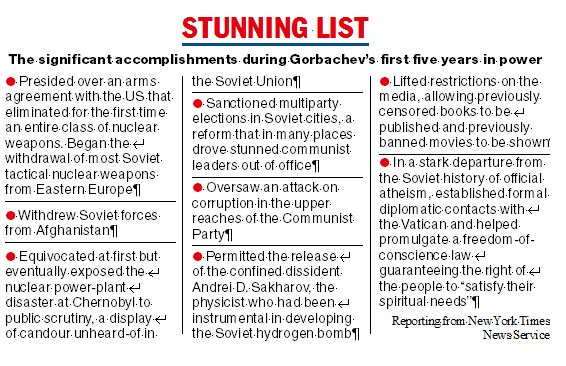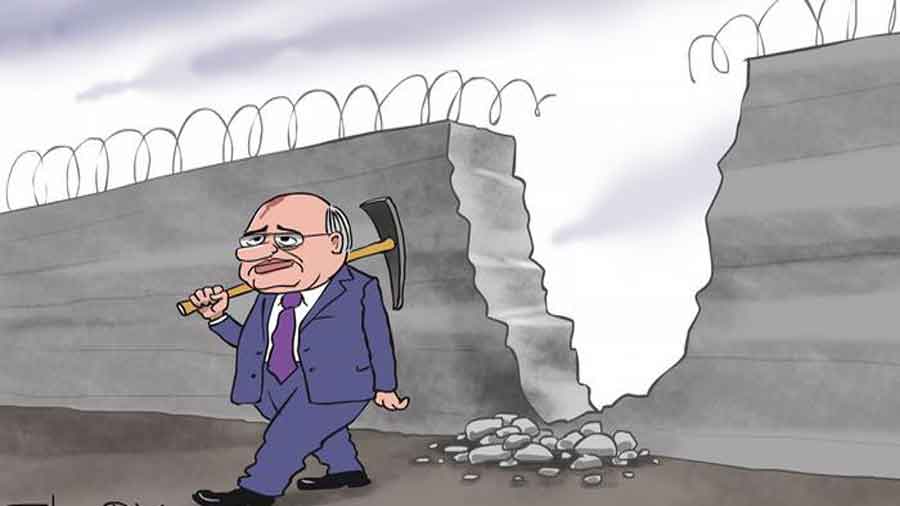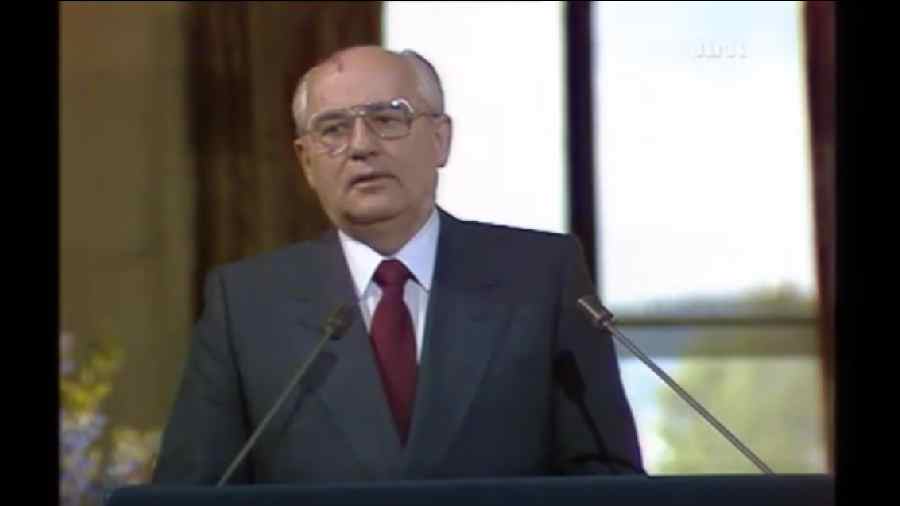The Communist utopia never became reality — neither through kind words and promises, nor through mass executions and gulags.
In 1985, the Communist Party of the Soviet Union (CPSU) undertook one last effort to preserve its empire. The Soviet Union's relatively young leader at the time, Mikhail Gorbachev, was meant to bridge a growing gap and catch up with the West. But, just like all his predecessors, he floundered.
His failure didn't just end the Cold War. By loosening the shackles of repression that held the Communist empire together, he gave millions of people their freedom back and with it their dignity — among them Russians, Ukrainians and other people in the Soviet Union.
They regained their national identities as Russians, Georgians, Armenians, Latvians and so on, becoming citizens with civil rights. They were no longer expected to think of themselves as the proletariat standing in front of empty supermarket shelves and at the same time, pretending to live in some kind of paradise.
'A common European home'
It is tragic that Mikhail Gorbachev has passed away now of all times. After the collapse of the Soviet Union in 1991, the people of the Baltic states, Poles, Czechs, Slovaks, East Germans, Romanians and others joined what Gorbachev once called the "common European home."
Only his own Russian compatriots still cannot decide to do so. Russia is a belated nation. Even worse, the current Kremlin leader, Vladimir Putin, also wants to prevent Ukrainians and Belarusians from taking the path to freedom and democracy.
Putin wants a return to pathos, utopia and slavery. He wants people to serve the state, not vice versa, like in Communist times. As in the Communist dictatorship, any public dissent is dangerous in today's Russia, where citizens are lied to via the state-controlled media. Just like the members of the erstwhile Politburo, Putin suffers from the delusion that Moscow is surrounded by enemies. As in Soviet leader Leonid Brezhnev's time, today's Nomenklatura is lining its pockets at the public's expense, with corruption and mismanagement rife.
Gorbachev promoted transparency by opening the Soviet archives so that Russians could see for themselves how many millions of their own people Stalin and Lenin killed for no reason. Putin did the opposite: Closing the archives, censoring history books, reintroducing the state's dogma of the infallibility, and resorting to lies to promote the patriotic education of the masses.
Putin, a political dinosaur
During his time, Gorbachev withdrew troops from the unwinnable Afghanistan war. Putin, on the other hand, dispatched forces in a "special military operation" to fight non-existent facism in Ukraine. Putin is a political dinosaur, inspired by 19th century ideas. He is a leader who fights to set up global "spheres of interest" because he is unable to modernize Russia's economy and infrastructure.

He does not understand that young Russians today will choose material prosperity — like the latest iPhone — over national greatness (whatever that is). This is evident from the hundreds of thousands of highly educated Russians who have left the country since the invasion of Ukraine.
Granted, Gorbachev was a party functionary with little economic expertise. East Germany's command economy, supposedly one of the most advanced systems around, was impossible to reform, as became clear after 1990. Most likely any Kremlin leader would have failed trying to quickly reform Moscow's planned economy.
Putin's alleged economic achievements 20 years ago were due entirely to high commodity prices. Or are there any products that Russia has developed and produces that are in demand anywhere in the world — apart from weapons?
The language of the pariah
Gorbachev secured a place in the history books. No other politician changed the world for the better in the second half of the 20th century as he did. Millions of people across the world started learning the Russian language because of Gorbachev, this new, humane politician.
Putin, in contrast, has turned Russian into the language of the pariah. Even many Ukrainians now avoid speaking it. And in the West, cultural managers feel they need to justify themselves for putting on a Tchaikovsky ballet, or a Dostoevsky reading, and so stage something else instead.
Yes, Mikhail Gorbachev's life was sometimes tragic, he failed all too often. But his intention was to change the world for the better. At least he tried.











